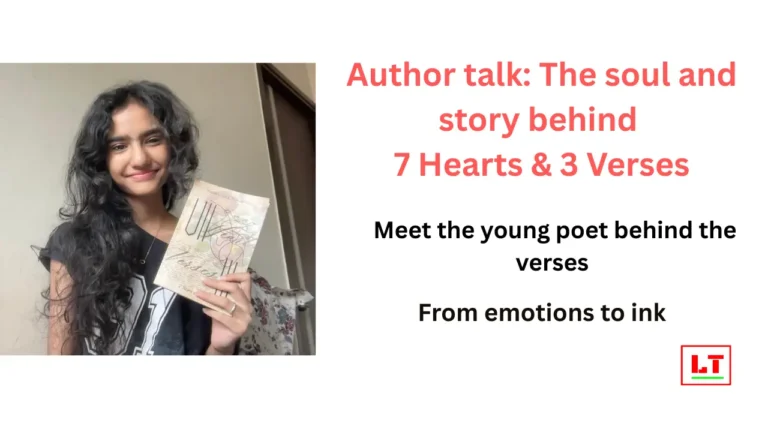Question 1: Sanjeevani, how did you decide which poems made it into the final book?
Answer by Ms. Sanjeevani:
Great question! I chose poems that felt emotionally honest and connected to the overall theme of the book. Some were spontaneous choices, others stayed with me for weeks. If a poem still made me feel something after many reads, I knew it belonged.
Question 2: Do you write poetry only when you feel emotional, or do you follow a schedule?
Answer by Ms. Sanjeevani:
Mostly when emotions overflow—but I’m trying to build more discipline. Inspiration is beautiful, but consistent writing helps sharpen your voice.
Question 3: What role does music or art play in your writing process?
Answer by Ms. Sanjeevani:
A huge role! Sometimes, a melody triggers an entire poem. I also love visual art—paintings and photography often inspire my metaphors. Creative energy across forms is very interconnected for me.
Question 4: Were there moments of self-doubt while writing this book?
Answer by Ms. Sanjeevani:
Many! I often wondered, “Is this good enough?” or “Will people relate?” But I’ve learned that doubt is a part of growth. I kept reminding myself why I started in the first place.
Question 5: Do your poems reflect real-life experiences or imagined ones?
Answer by Ms. Sanjeevani:
A mix of both. Some are deeply personal, while others are inspired by stories I’ve observed or imagined. Poetry allows me to blend reality with imagination beautifully.
Question 6: Have any readers reached out to you about how your poems impacted them?
Answer by Ms. Sanjeevani:
Yes, and those messages mean the world to me! One reader told me a poem helped them feel less alone during a hard time. That kind of connection is priceless.
Question 7: If your book were to be turned into a visual format—like a short film or series—how would you envision it?
Answer by Ms. Sanjeevani:
That’s a dream! I’d love a short film where each “heart” becomes a visual chapter, blending narration with minimalist art, music, and spoken word. Almost like a poetic visual diary.
Question 8: How do you feel poetry can help with mental health or emotional awareness, especially for teens?
Answer by Ms. Sanjeevani:
Poetry is therapy in disguise. Writing or reading it helps you name your emotions, confront pain, and feel heard. It’s a safe, beautiful space to heal and understand yourself.
Question 9: Is there a quote or mantra you live by as a writer?
Answer by Ms. Sanjeevani:
Yes—“Write what hurts until it doesn’t.” It reminds me that writing is both an act of bravery and release.
Question 10: What legacy or message do you want 7 Hearts & 3 Verses to leave behind?
Answer by Ms. Sanjeevani:
I want it to be a safe space for emotions. A reminder to every reader—especially young ones—that your voice matters, your feelings are valid, and poetry is a home you can always return to.

